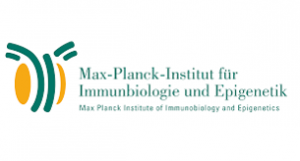Max Planck Institute of Immunobiology and Epigenetics

The Max Planck Institute of Immunobiology and Epigenetics (MPI-IE) in Freiburg is an interdisciplinary research institution that conducts basic research in two key areas of modern biology.
Immunobiology is concerned with the ways multicellular organisms defend themselves against pathogens. We study the evolutionary origins and the development of lymphoid organs and immune effector cells, the function of antigen receptors, and the genetic basis of host-pathogen interactions. This information underpins efforts to better diagnose and treat immunodeficiency and inflammatory diseases.
Epigenetics is the study of inheritable traits that are not caused by changes in the underlying DNA sequence. Epigenetic mechanisms are crucial for the organization and utilization of our genetic information. Since the susceptibility to diseases can be promoted by epigenetic dysfunction, epigenetic research has far-reaching implications for diagnosis and therapy of human disease.
The MPI-IE with its 345 employees currently hosts 14 research groups, which are supported by state-of-the-art scientific facilities. For the training of young scientists, we offer an international PhD program, the International Max Planck Research School for Molecular and Cellular Biology (IMPRS-MCB).